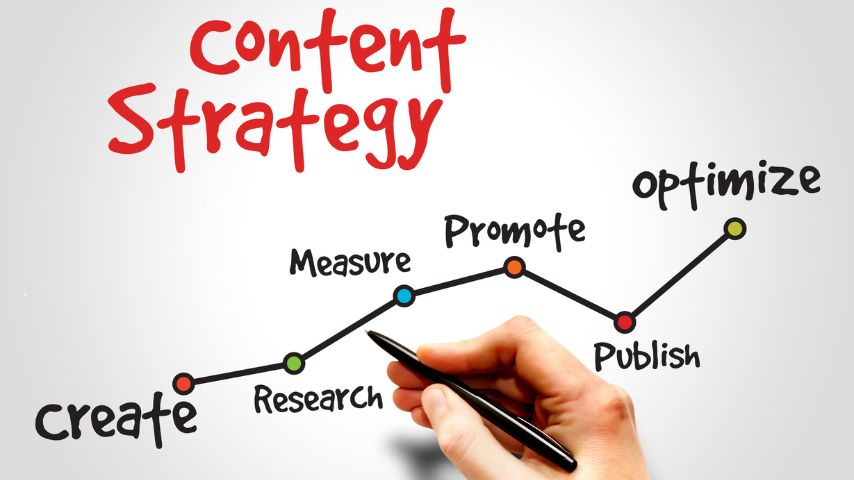Generative AI is now appearing and challenging the various industries in different parts of the world at the present time such as in healthcare, finance, entertainment, and manufacturing industries. It is a novel technology that is revolutionizing how organizations are being operated at presenting the prospects of productivity, creativity as well as efficiency in the handling of problems.
‘A related survey of law firm lawyers found similar results, with 80% agreeing that the tech can be used for legal work, with approximately half saying it should be.’
Generative AI is not a luxury for corporate legal departments, but it has become a necessity for them to keep up with the fast-paced corporate world. In the current climate where legal teams are experiencing growth in workload, budget constraints, and demands for higher accuracy. Generative AI offers a strong solution to these pressures.
This guide outlines how Generative AI can help in-house corporate legal departments, and explores the advantages of its use. The primary application areas, and the ways of its adoption to ensure that legal specialists are ready for the future.
What is Generative AI?
Generative AI is a subset of artificial intelligence that is used to create something new through writing, art, sound, and even video. Generative AI, in contrast, learns patterns and then uses the information to develop new data, unlike the conventional AI approaches that involve sorting or analyzing information. Due to this capability, it has become a powerful tool for developing new concepts, layouts, and approaches in numerous fields.
Advantages of using Generative AI for the Legal Department
It can be stated that corporate in-house legal departments have numerous advantages with generative AI since it alters existing traditional workflows and enhances the operation of an organization. In essence, Generative AI reduces the time that legal practitioners spend drafting documents, reviewing them, or researching the legal content to do more profound work.
Automating Routine Tasks
With generative AI, legal departments stand to gain from increased efficiency. Tasks such as document review and contract analysis, which may take a significant amount of time to do manually, are easily done with the help of AI.
Reducing Turnaround Times
Generative AI is beneficial in minimizing the time taken to perform legal activities, as the system handles mundane work. Some work that would have probably taken days or weeks can now be done in a few hours at most. This not only increases the speed but also releases the time for legal professionals to work on more important and challenging aspects, thereby improving efficiency.
Simplifying Legal Workflow
The monotonous work like document preparation, scanning, and research can be fully automated. Hence, the demand for human resources is minimized, thus cutting down a greater portion of costs. Legal departments can also function with a leaner team, which will help to reduce expenses on personnel while not necessarily affecting the quality of service rendered.
Resource Optimization
Generative AI, it is noteworthy, empowers legal departments to make the best use of their human capital by assigning human skills to the tasks that require them most. Low-value activities can be automated; this will allow legal professionals to focus their time and effort on activities such as advising clients, bargaining, and strategizing. One of the key benefits of such a distribution is the increase in the overall productivity of the legal department.
Standardizing Processes
One of the most important benefits of generative AI is that it will assist in the normalization of legal activities, guaranteeing that all papers and processes meet the same criteria. This is important to ensure that there is no variation between the existing standards and policies in the organization. Standardization by AI results in better and more consistent results, thus increasing the quality and credibility of the legal profession.
Top Benefits of Generative AI in the Legal Department

The application of generative AI offers several critical areas that can enhance the efficiency of an in-house corporate legal department. These applications cover all the important areas where AI is used to optimize processes and increase the effectiveness of work.
Automated Contract Generation
For instance, generative AI can write contracts and other legal papers in the contract by following specific templates and inputs. This not only increases the rate at which documents can be prepared but also guarantees the inclusion of all the clauses and legal formalities. Automated contract generation can work with different contracts, ranging from NDAs to more complicated business contracts.
Manual Paperwork Elimination
The use of AI can help quickly read and assess many documents and extract useful information and potentially problematic situations. This capability is beneficial in the due diligence stage, legal discovery, and compliance reviews, where tons of data require proper and swift analysis.
Legal Research
Generative AI can help improve legal research by offering effective search functionalities that enable the identification of the corresponding case law, statutes, and other legal precedents. These tools are smart enough to work in the context of legal queries and provide accurate results. AI-based legal research is time-effective and guarantees that lawyers have the most recent data to work with.
Client Interaction and Support
AI-based chatbots can provide initial engagement with clients and respond to frequently asked questions while collecting preliminary information. These chatbots give instant answers, enhance the client’s satisfaction, and allow legal specialists to solve more challenging problems. Chatbots can also help clients navigate through simple processes, for example, filing for a claim or submitting a document.
Implementation Strategies to Use While Adopting AI in Your Practice

As a first step to adopting Generative AI in your organization, you should evaluate the existing processes in your legal department and identify particular issues. Enumerate activities that are tedious, take a lot of time, and are vulnerable to mistakes from the human element. This evaluation will also assist you in determining areas where you can leverage the use of AI most – for example, document review, contract analysis, or legal research.
Setting Clear Objectives and KPIs
Once you have identified the areas for improvement, ensure that you have clear goals and objectives of what you want to realize with Generative AI. Such goals might be cutting the time spent on document review in half, enhancing the accuracy of the contracts’ analysis, or enhancing the monitoring of compliance. Determine Key Performance Indicators (KPIs) that will be used to assess the effectiveness of the introduced AI. Examples of KPIs are the time taken to complete a job, the rate of errors, costs that have been saved, and the satisfaction level of users.
Criteria for Selecting AI Solutions
The type of AI tools adopted by an organization plays a significant role in the outcome of the implementation. Consider the following criteria:
- Functionality: Check if the AI tool contains the features that you require, like NLP for document analysis or predictive analytics for risk analysis.
- Ease of Integration: The tool must be compatible with the current software and processes of the institution or organization.
- Scalability: Select a solution that will be compatible with the current and future requirements of the department.
- Vendor Support: Select vendors that have good support and can offer training and guidance in case needed.
- Cost: This stage involves reviewing the cost-benefit analysis to determine whether the investment is worth it or not.
Popular AI Tools and Platforms
Several AI tools and platforms are particularly suited for legal departments:
- Kira Systems: Focusing on contract review and analysis through the use of artificial intelligence.
- LawGeex: Manages and streamlines contract review and approval processes.
- Leverton: Specializes in acquiring and processing lease information and other legal papers.
- Luminance: Machine learning is applied to analyze legal information and define risks and peculiarities.
Ensuring Compatibility
It is also crucial to evaluate the compatibility of the adopted AI solutions with existing frameworks, including document management systems, e-discovery tools, and legal databases. Compatibility is the best practice to ensure that the AI tools fit well in an organization so that they can work as planned.
Data Security and Privacy Aspects
Since the work being done involves handling client information, data security and privacy are highly regarded. Make sure that the AI tools do not violate the policies of data protection like GDPR or CCPA. Applications such as encryption, access controls, and periodic security assessments should be applied to ensure that confidential information is well secured.
Informing the Employees on AI Instruments
To ensure that the new AI tools receive the desired adoption, it is important that you train your employees on the same. Organize extensive orientation sessions so that everyone in the team can be able to learn how to use the tools. Emphasize on the positives and show how AI can assist in making their tasks easier and more precise.
Managing the Transition Process
Technology implementation requires change management because it is a process of introducing something new. To overcome any type of resistance that may be experienced by staff, one has to engage them in the implementation process and seek their opinion. Be very clear with the expectations and the gains that are expected to be achieved. Continuously offer assistance and information to enable the staff to transition to the new processes. Encourage recognition of success and organize assessments of how AI changes the legal department’s operations for better or worse to make the necessary improvements.
Summing Up
Generative AI has a lot of advantages for corporate in-house legal departments, including increased productivity, reduced costs, and increased accuracy. In this way, by delegating time-consuming work, legal teams can devote more time to such tasks that would benefit organizations more. But to achieve this, one needs to plan the process properly starting from the assessment of the current processes, choice of the tools and the ways to integrate them, and to address the issues of change management.



